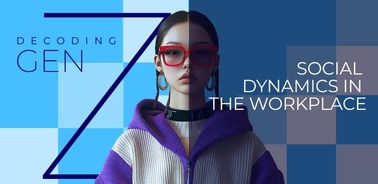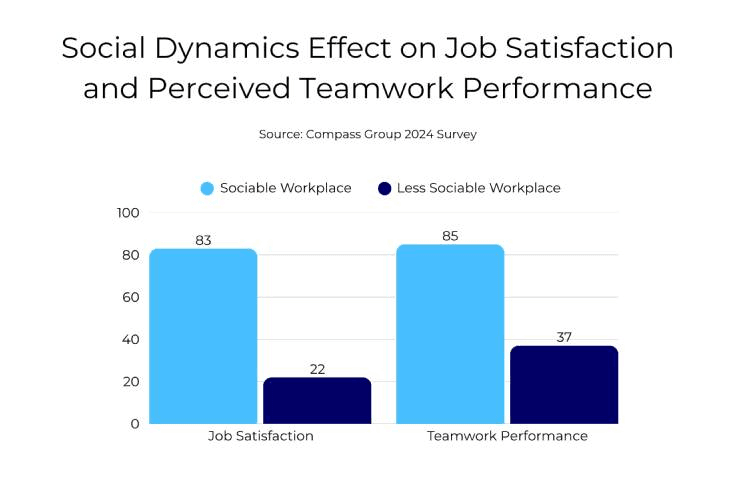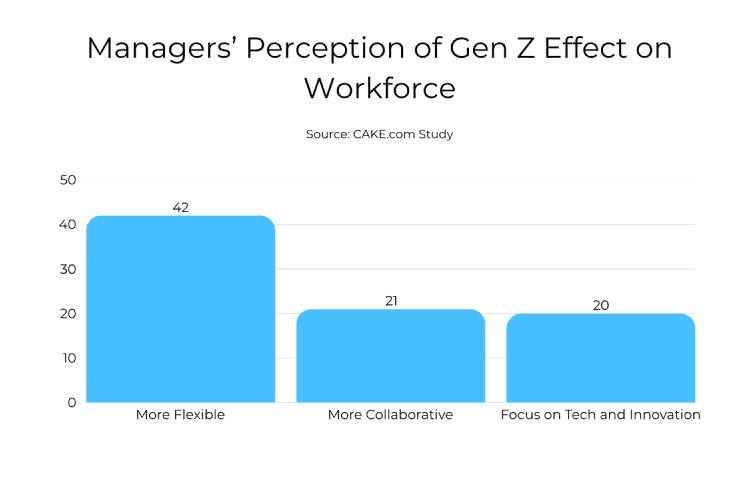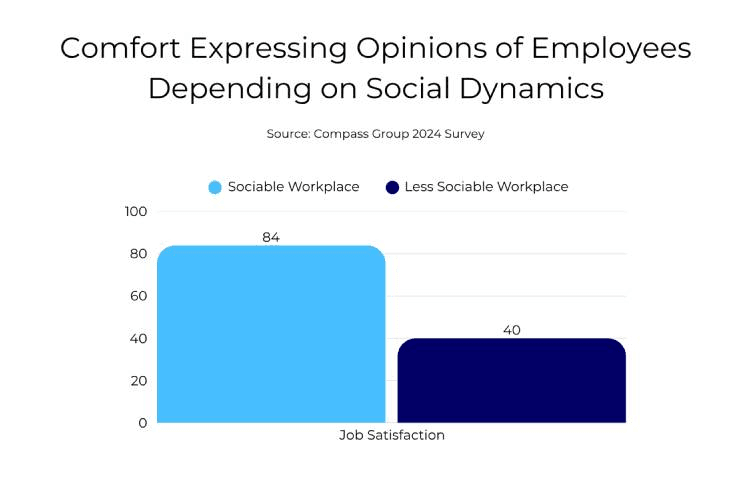- Home
- News & Events
- News
- Decoding Gen Z: Social Dynamics In The Workplace, Gen Z’s Key To Connection And Success
Decoding Gen Z: Social Dynamics in the Workplace, Gen Z’s key to connection and success


Different from older generations that are more accepting of sacrificing personal encounters for the comfort of remote work, Gen Zers are less likely to tolerate the pains of isolation. According to the report, which surveyed over 30,000 workers and students across 21 countries, 54% of Gen Z employees who feel isolated at work would consider leaving their job.
New Generation, New Priorities
Forbes predictions indicate that Gen Z will account for 27% of the workforce by the end of the year. Socially, they are already making an impact in the work environment. 42% of managers surveyed by business productivity service provider CAKE report that Gen Zers are creating a more flexible work atmosphere.
However, their impact transcends the superficial and appeals to the core values of an organization itself. According to Deloitte’s 2025 Gen Z and Millennial survey, 41% of Gen Zers have rejected a potential employer based on their ethics, paying special attention to mental health and how managers build a workplace culture. The survey indicates that 42% of Gen Zers believe managers have a responsibility to create a positive and inclusive work culture.
For Gen Zers, social dynamics, connection, and relationships at work are more than just an accessory to the workplace. They expect managers to care about what kind of culture they are creating, and have a spectrum of opinions and priorities regarding what a positive and inclusive workplace looks like.
IE Talent and Careers has done research with a range of Gen Z undergraduate students to find clarity on what kind of people dynamics the future generation of work desires. Interestingly, the results are not always what organizations may already assume or expect.
Social Dynamics: The Value of Variety
Deloitte’s survey talked about a “positive and inclusive work culture,” but what does this mean for Gen Z? It turns out that a key pillar in their ideal workplace is recognizing the value of variety in opinions, backgrounds, and perspectives.
“Nowadays, it’s more important than ever to hire people with different opinions and mindsets,” said a 4th year Bachelor in International Relations student “Especially in today’s polarized climate, it is paramount to talk to those with whom you disagree to achieve a better understanding of a different side, even without reaching an agreement.”
Students also underlined that avoiding echo chambers can benefit the organization pragmatically. The more viewpoints there are in a conversation, the richer the debate will be, with a smaller possibility of overlooking the impact of a decision on a specific segment of the internal or external public. This is also reflected in multifaceted solutions.
“Without diversity, I feel like you can never reach a common goal that's going to work for everyone,” said a fourth-year Bachelor in Computer Science and AI student, “if I'm working with someone like that has the same background as me, we're more prone to agree on everything and hence be very niche, whereas if we include people of different background skills, it helps us come up with better solutions for everyone."
Conversations across different viewpoints are a key element of a positive workplace culture for Gen Z. However, the kind of spaces designed to facilitate those conversations are not easy to design, and Gen Z has its own vision for them.
Defining Safe Spaces: Inclusive versus Exclusive Communities
According to the aforementioned Compass Group report, a sociable workplace can make employees more at ease with sharing their viewpoints. 84% of employees in highly sociable workplaces feel comfortable expressing opinions versus only 40% in less sociable workplaces.
Many companies today are concerned with creating spaces for employees to share for a variety of purposes, from breaking silos to creating safe spaces for specific communities.
For Gen Z students, forums where communities can share their experiences can be highly beneficial. From mentorship with individuals who have had similar experiences to the discovery of systemic inequalities, creating spaces for communities in the workplace is seen as an opportunity by Gen Z.
“A club to go and talk about their shared experience and be able to feel empathy and feel comfortable expressing things that they may not express otherwise,” said a third-year Bachelor in Communication and Digital Media student, “that is an initiative that helps to empower people.”
Nevertheless, Gen Zers see the value in having a balance of inclusivity and exclusivity; while safe spaces for a specific community can amplify voices and empower individuals with similar experiences, it is still paramount for Gen Z students to include everyone in important conversations.
“While these safe spaces are extremely important, I do think it's essential that all the conversation doesn't shift to there,” a fourth-year student of the Bachelor in Economics said, “there can be a tendency to create silos instead of making everyone aware and part of an important conversation, which is something we need to beware of.”
Performative versus Genuine Care
A key point of consensus among Gen Zers is their rejection of performative policies around workplace culture. Although Gen Z values a positive and inclusive workplace, they are avid detectors of when efforts by managers are genuine or not.
“When efforts are super performative, and that is what becomes the industry norm, it exacerbates a feeling of worthlessness and devalues the cause itself,” said a third-year Bachelor in Communication and Digital Media student.
Concern for individuals in the workplace needs to be genuine, especially for mental health, a key issue for Gen Zers. Monster Government Solutions’ 2024 State of the Graduate Report concludes that 92% of Gen Z graduates would like to discuss mental health at work, another example of Gen Z’s value of open conversation in the workplace.
In a Nutshell: Social Dynamics at Work for Gen Z
Gen Z’s impact in the workplace extends beyond individual needs and affects the social web of a company. A generation that is mindful of a workplace’s values, they desire genuine, open conversations across different perspectives on issues that matter, and spaces to facilitate them.

